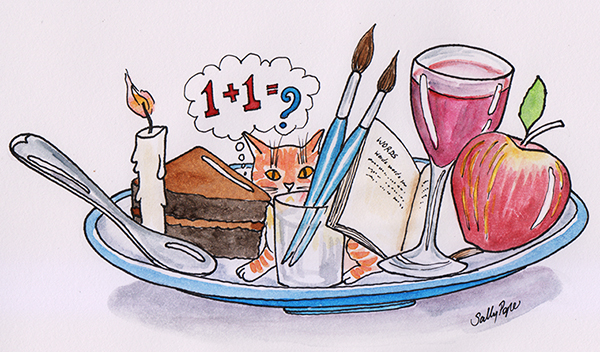How often have you read a passage and thought ‘what a cliché-ridden heap of twaddle!’? When we recognise these well-worn words and phrases, we prefer to think we don’t use them ourselves. It is, however, surprisingly easy to slip into using clichés . This is because they provide off-the-shelf language that doesn’t require us to think too much. And we see these little constructions every time we open a newspaper or magazine, or listen to current affairs. We can borrow them without even realising it, as they quietly become part of our mental inventory. It is quite likely, too, that you will find a few in my writing, as it is almost impossible to avoid them completely.
What is a cliché, anyway?
Most people will probably know what I mean by clichéd expression. But I’ll remind you anyway. We might also refer to it as hackneyed language, tired prose or common idioms. Every cliché was once a fresh, clever expression, often born as a surprise and applauded for its aptitude; a new way of saying something, which fitted the purpose so nicely and rapidly became popular. But because of this very aptness, we used it until it became exhausted and no longer surprising, fresh and potent. Think of ‘x is the new y’ – ‘Fifty is the new forty’ or ‘Yellow is the new black’. This concept, of something overtaking the accepted benchmark, seemed bright and spot-on when it first appeared. Its origin is probably lost, but perhaps it was created in advertising. It is a bit overdone now, no longer original and clever, just a borrowed over-used phrase.
Some expressions have gone the full circle. They once enjoyed the status of new, became exhausted, then gradually joined the ranks of ordinary language. In fact ‘gone the full circle’ might be one of these!
Some examples
I will give you a few examples of the hundreds of clichés that can slip into your writing to steal its originality. One that I think of instantly because it is so familiar in 2020, is ‘we are in the grip of a bush-fire crisis’ (or insert the current crisis). We could simply state the severity of the problem and our lack of control. But it is easier to grab ‘in the grip of’ off the shelves in our minds. Another that appears frequently: ‘she has a lot on her plate’, meaning she is very busy or coping with a variety of issues. ‘I’m loving her outfit’: this implies that the loving is on-going, continuing in the past, present and future. Why not just ‘I love her outfit’? And why do people have to be ‘doing it tough’ when they are probably just suffering terribly?

There are some text types that are veritable cliché farms. The media is always full of them, perhaps because they have to meet deadlines and need to work quickly. It is easy to grab these short media-friendly phrases. Think of the news headlines, especially during times of tragedy (‘She made the grim discovery’, ‘She was left reeling’, ‘Powerful gusts fanned blazes’). Self-help literature, especially the ‘wellness’ ones; the world of business and employment (all that stuff about passion, taking deep dives, leveraging…), advertising, trashy novels (‘Her mouth was set in a grim line’).
Election time provides a richness of clichéd language. This is often because our politicians like to work with short slogans that can be remembered easily. Every election, especially the federal campaigns, generates a few that the electorate has trouble forgetting. Remember ‘jobs and growth’ from Australia’s 2016 election?
What can I do to avoid clichés?
I think it is unfair and unrealistic to advise people to completely avoid using these stock expressions. It is hard to draw the line between commonly used phrases and dreadful clichés. In fact, it may even be a bit of a cliché to be too worried about using them. See, I have used ‘where to draw the line’, which must be one.
If you are writing a piece of text and a well-worn old phrase seems to fit, I think plough on, use it anyway, rather than interrupt the flow of your thoughts. Then go back later, read your text and find any phrases that look weary and second-hand. Think of a more ordinary way to express yourself, as if your audience were new to your language, without resorting to baby language. Think of how many times you have heard a particular phrase; if it is familiar from the media, then it may need to be changed. However, don’t become too caught up in trying to eradicate every ready-made expression.
A little thought and attention might help to freshen your writing and make it truly your own.
